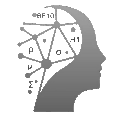There are various ways to classify people. In a previous article I mentioned the “5 personality traits,” also called OCEAN. There is also a variation of the latter, called HEXACO. Young people are more familiar with the MBTI. But these turn out to be psychometric approaches. In this article I will use an approach by the Italian economist Carlo Cipolla.
According to Cipolla, we can classify people into four categories, based on expected outcomes of their behavior, toward themselves and toward others:
- Intelligents act in ways beneficial to both themselves and others
- Bandits act advantageously for themselves to the detriment of others
- Unwise act in a way that is beneficial to others and harmful to themselves
- Stupid people act in ways that are harmful both to themselves and to others.

Generally, in Italy, when one thinks of an example of an intelligent entrepreneur, in the cipollian sense, the name Olivetti emerges (the Italian Steve Jobs). As for bandit entrepreneurs, there are numerous cases, which cannot be cited directly, linked to environmental disasters for communities and private profits. Unwise are observed more in religious communities, in fact this classification has other names as well. Generally speaking, there are young entrepreneurs of small, recently established companies where the entrepreneur, for tot months, earns less than the average employee.
Let us abandon this classificatory rigidity: rather than labeling individuals, we can label the behaviors of entrepreneurs and managers. If we make the first choice, we generalize too much, lapsing into bias; we are behaving like those rigid statistical models, that is, with overfit.
Since we can talk about stupid behavior, there are situations where you can find yourself making decisions that are harmful to both you and others (the community, employees, or both). No one is born learned, and those decisions have contexts that are more or less understandable. Fortunately, for those more justifiable, you can already acquire a minimum of defense on this front, in order to make decisions that are less harmful to both you and others. Or you can find out, in the field of statistics, a set of demands to be avoided.
I would add a further classification: foolish behaviors by definition. That is, the stupid ones repeated in a systematic way: expecting different results by repeating the same decision, strategy.
From this further classification, its opposite also emerges: enlightened behavior. Etymologically speaking, enlightenment derives from rationality, which in turn derives from numerability, that which is measurable or quantifiable. This connection brings us into mathematics and inevitably into statistics. In other words, enlightened choices emerge from systematic choices suggested by data analysis and awareness of the value that data can provide.
If you care about having fewer costly behaviors for both you, your employees, and potential customers who can’t find you, we can talk to each other to figure out our compatibility, and then begin more structured statistical consulting.
